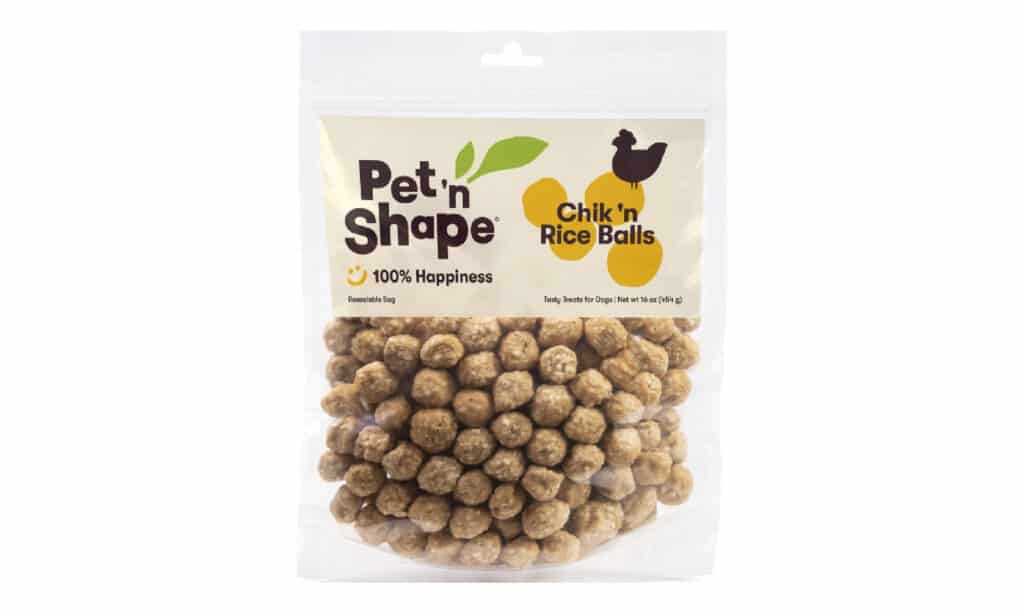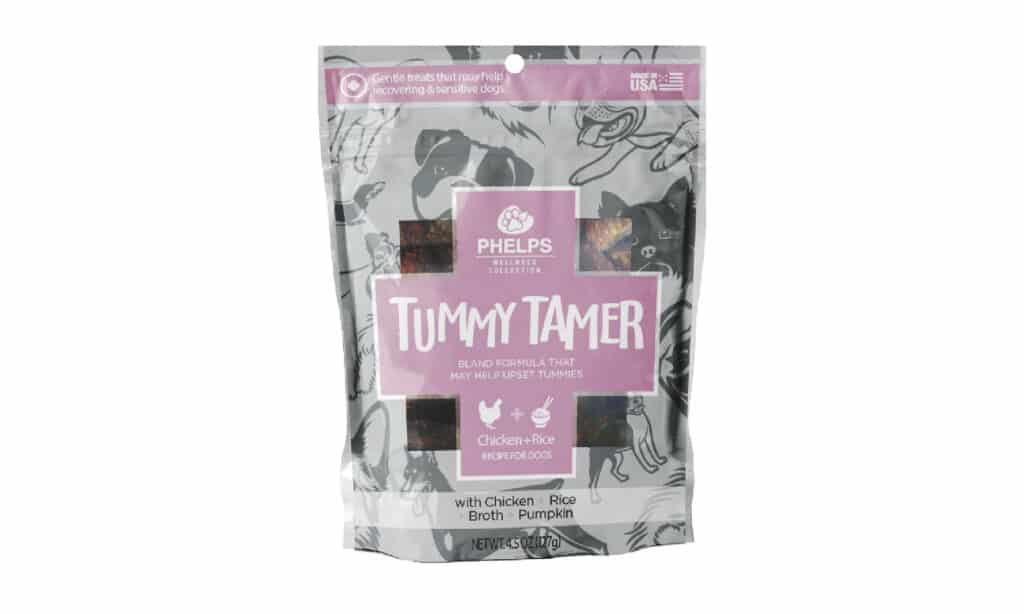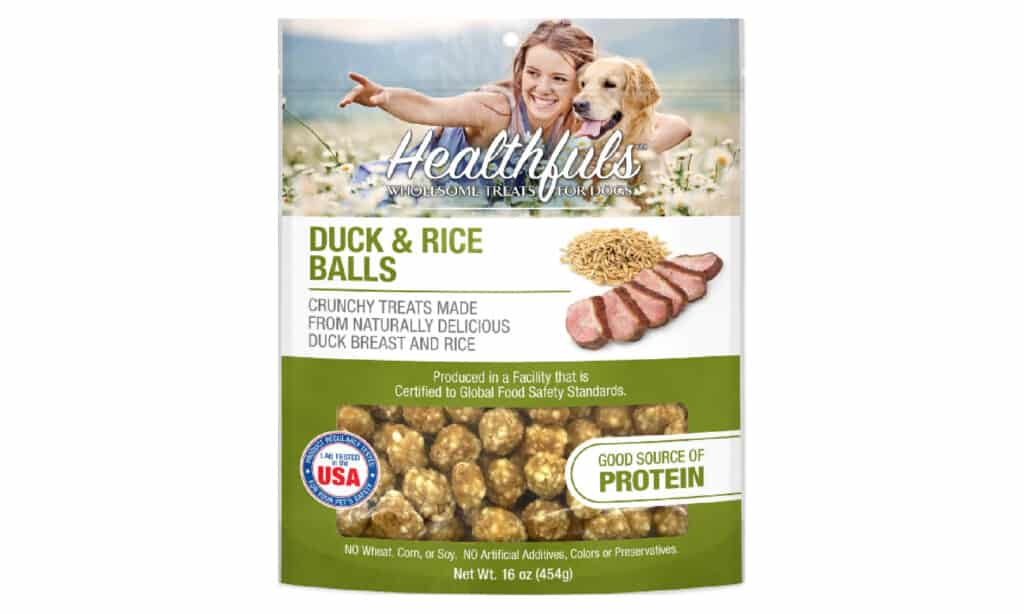As a pet health expert, I’m often asked about the human foods that are safe for dogs to eat. One dish that comes up frequently is fried rice. Many pet owners wonder if it’s safe to share this tasty dish with their furry friends. In this blog, we’ll take a closer look at the ingredients in fried rice, and whether or not it’s a safe treat for your pup. So, whether you’re looking to share your love of Chinese takeout with your dog or just want to make sure you’re feeding them the right foods, keep reading to learn more!
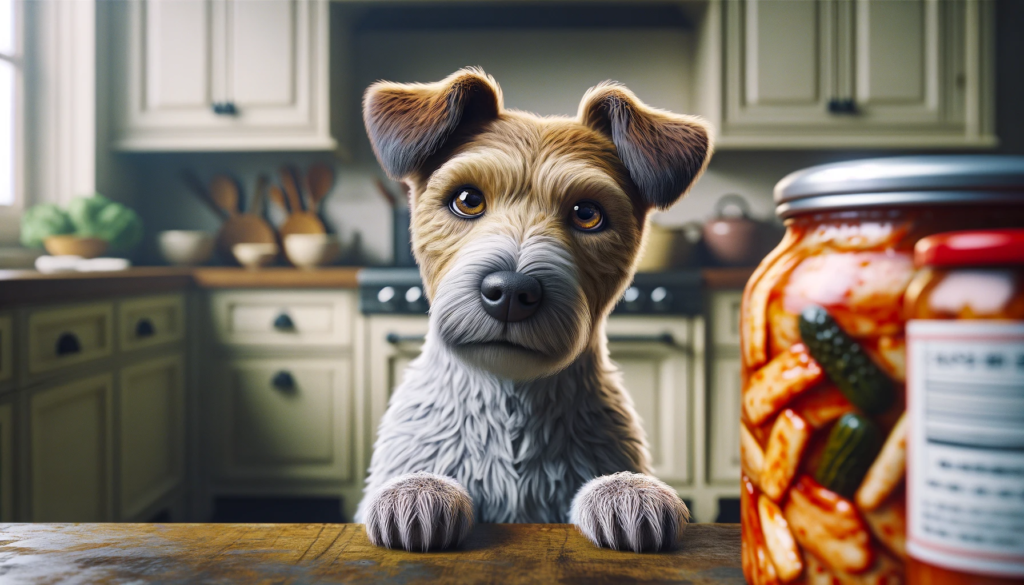
What is Kimchi?
Kimchi is a traditional Korean dish that has been enjoyed for centuries. It’s a spicy and tangy vegetable dish that’s made with ingredients like cabbage, radish, scallions, garlic, ginger, and chili pepper. The ingredients are mixed together and fermented, creating a complex blend of flavors that’s both savory and spicy.
It can be served as a side dish with Korean meals, or used in a variety of recipes like soups, stews, and fried rice. Depending on the recipe and personal preferences, kimchi can be customized to be extra spicy or milder.
The fermentation process creates beneficial bacteria that support gut health, and kimchi is low in calories and fat while being high in fiber and nutrients.
Where Did Kimchi Come From?
Kimchi is a spicy and tangy dish that’s been around for over 2000 years. Originally, it was just made with vegetables and salt, but over time, it’s evolved into the delicious recipe that we know and love today.
Kimchi is a staple in Korean cuisine and is often served as a side dish. It contains an array of ingredients that can be used in a variety of recipes, like soups, stews, and fried rice. Kimchi has become really popular all over the world, and you can now find it in many supermarkets and restaurants.
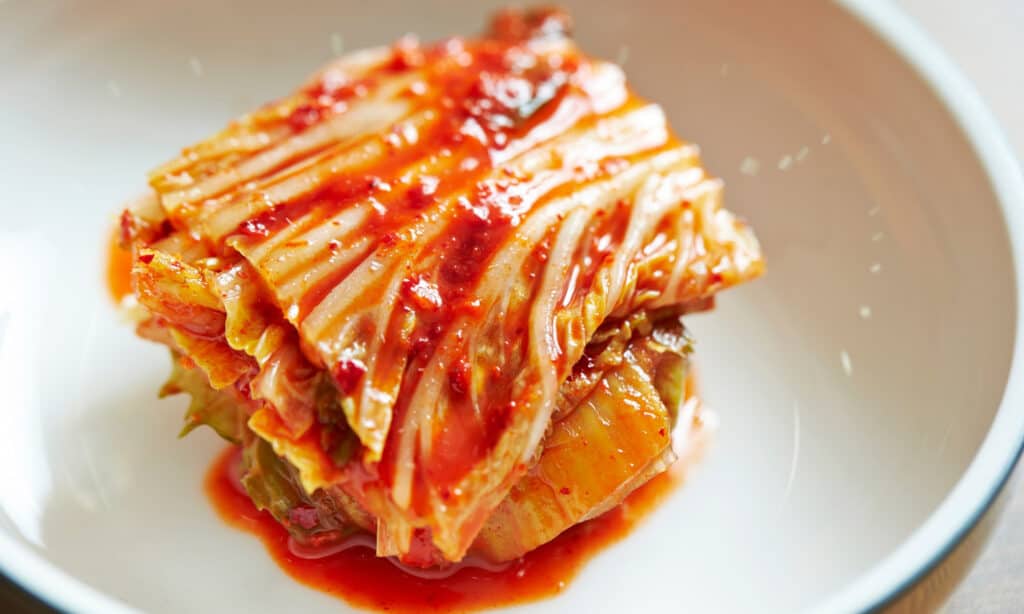
Kimchi Ingredients
The first thing to consider when it comes to feeding your dog kimchi is the ingredients. Some ingredients in kimchi can be harmful to dogs, so it’s important to know what’s in the dish before sharing it with your pup. Garlic and onions, for example, are both ingredients commonly found in kimchi that are toxic to dogs. These vegetables contain compounds that can damage a dog’s red blood cells, leading to anemia. If your dog ingests garlic or onions, they may experience symptoms such as vomiting, diarrhea, lethargy, and a decreased appetite. In severe cases, garlic and onion toxicity can be life-threatening.
When it comes to feeding your furry friend kimchi, it’s important to be cautious. While most kimchi recipes contain garlic and onions, which are generally safe for dogs in small quantities, some variations may include harmful ingredients like chili peppers. Capsaicin, the compound found in chili peppers, can irritate a dog’s digestive system and cause discomfort.
So, if you’re thinking about giving your pup a taste of this spicy Korean dish, it’s crucial to check the ingredients carefully first. Make sure that there are no harmful ingredients that could make your dog sick. Remember, your furry friend’s health and well-being should always come first, so when in doubt, it’s best to err on the side of caution.
Inappropriate Ingredients in Kimchi
Onions and Garlic
Onions and garlic contain compounds called thiosulphates, which can be toxic to dogs in large amounts. These compounds can cause damage to a dog’s red blood cells, leading to a condition called hemolytic anemia. Hemolytic anemia can cause symptoms such as lethargy, weakness, pale gums, and even collapse. In severe cases, it can be fatal.
The toxic dose of onions and garlic can vary depending on the size of the dog and the amount consumed. However, as a general rule, it’s best to avoid giving dogs foods that contain these ingredients. This includes cooked or processed foods with onions or garlic, such as soups, stews, and seasoning blends.
It’s important to note that small amounts of onions or garlic in a dog’s diet are not likely to cause harm. However, if you suspect that your dog has consumed a large amount of either of these ingredients, it’s important to seek veterinary care immediately. Early treatment can help prevent serious complications and ensure the best possible outcome for your furry friend.
Capsaicin
While chili peppers may add a spicy kick to human food, they can actually be harmful to our furry friends. The compound responsible for the heat in chili peppers is called capsaicin, and it can cause discomfort and even illness in dogs.
When a dog ingests capsaicin, it can irritate their digestive system, leading to symptoms like vomiting, diarrhea, and stomach pain. In more severe cases, it can even cause breathing difficulties or other serious health problems.
It’s important to note that dogs are more sensitive to capsaicin than humans, so even a small amount can have a significant impact on their health. That’s why it’s crucial to avoid feeding your dog any food that contains chili peppers or capsaicin.
So, while you may love the spicy kick of chili peppers in your food, it’s best to keep them away from your furry friend’s diet. Stick to dog-friendly foods and treats to ensure that your pup stays happy and healthy.
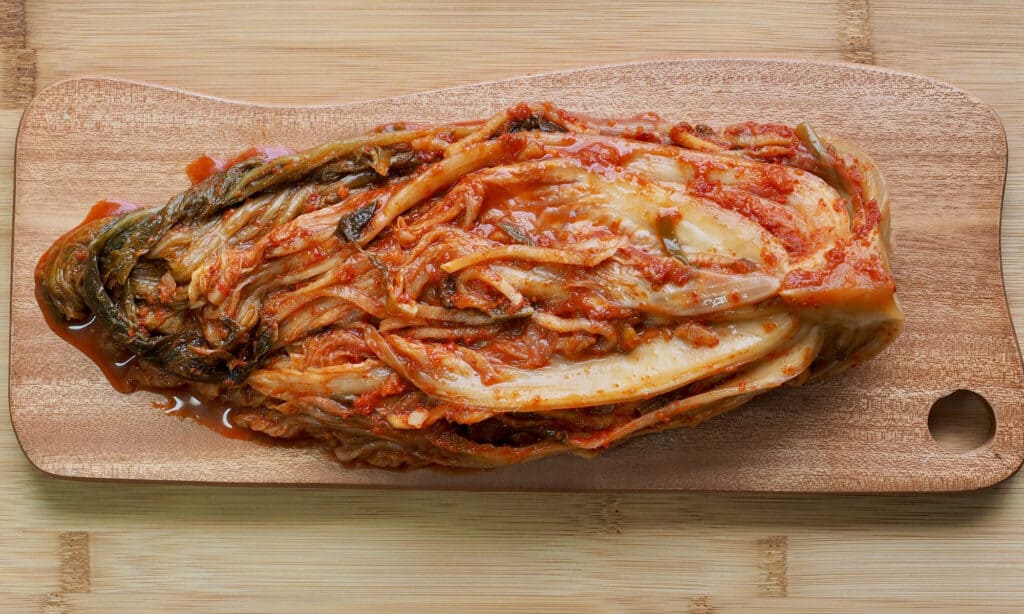
Healthy Ingredients in Kimchi?
Fermented Foods
Fermented foods like kimchi can actually be good for dogs in moderation. During the fermentation process, beneficial bacteria are created, which can promote good gut health and boost the immune system.
When dogs consume fermented foods, the good bacteria help to balance out the bad bacteria in their digestive system, leading to better overall health. Fermented foods are also high in fiber, which can aid in digestion and promote regular bowel movements.
In addition to the health benefits, fermented foods can also add a unique and delicious flavor to your dog’s diet. Just be sure to introduce them in moderation, as too much of a good thing can cause digestive issues.
When feeding your dog fermented foods, it’s important to choose the right ones. Stick to homemade options or reputable brands that use high-quality ingredients. Avoid feeding your dog any fermented foods that contain harmful ingredients like garlic, onions, or chili peppers.
So, if you’re looking to mix up your furry friend’s diet, consider adding some fermented foods like kimchi to their meals. Not only will it add some variety to their diet, but it can also promote good gut health and overall wellness.
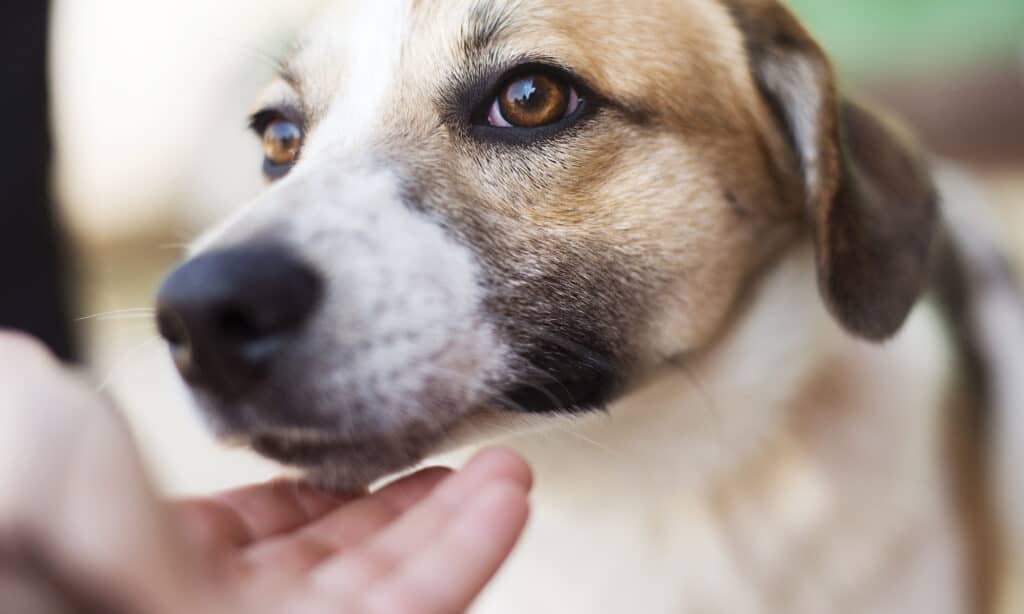
Help?!? What if my dog accidentally ate a lot of Kimchi?
If your dog accidentally ate a lot of kimchi, it’s important to monitor them closely for any signs of distress.
Post Snack Distress Signs & Symptoms
Dogs that consume a large amount of food that contains lots of spices and flavorings can experience digestive upset, including vomiting, diarrhea, and abdominal discomfort. In some cases, they may also develop pancreatitis, a condition that causes inflammation of the pancreas and can be quite serious.
When or If You Should Go To The Vet?
Generally, there will be no need for a vet visit if your dog eats some kimchi. However, if your dog ate more than a cup of fried rice, you should probably call your local vet clinic. They can advise you based on the size and health of your dog.
If your dog seems lethargic or unresponsive, go to the pet emergency hospital right away.
Canine-friendly and safe alternatives to Kimchi
If you’re searching for a tasty and healthy snack to give your furry friend, there are plenty of great alternatives to fried rice that are both safe and delicious.
Healthy Store-Bought Recommendations
While kimchi can have some potential benefits for dogs, it’s important to be aware of the potential risks too. Kimchi is a fermented food, which means that it contains beneficial bacteria that can support digestive health. These bacteria help maintain a healthy balance of gut flora, which is important for overall health and wellbeing. Plus, kimchi is low in calories and fat, making it a healthy option for dogs that need to maintain a healthy weight.
However, it’s essential to remember that dogs have different nutritional needs than humans. While kimchi may have some benefits, it’s not a complete or balanced meal for our furry friends. Dogs need a diet that’s high in protein and fat and low in carbohydrates, while kimchi is primarily a vegetable-based dish.
So, while it’s okay to offer your pup small amounts of kimchi as an occasional treat, it should not be a significant part of their diet. As always, it’s important to talk to your veterinarian before making any significant changes to your dog’s diet. They can help you determine what’s best for your furry friend’s unique needs and ensure that they’re getting all the nutrients they need to stay happy and healthy.
~Lindsie

